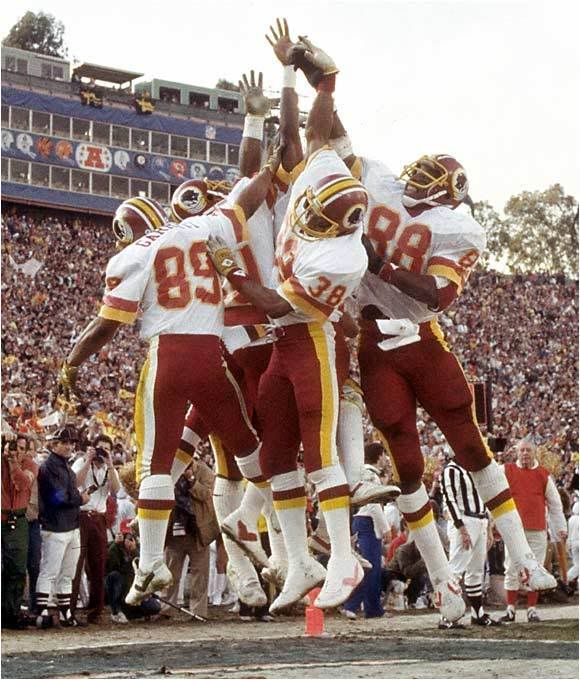When I was a student at JMU from 1989-1993 the country was in the grips of a horrible recession. Governor Wilder was running for President and refused to raise taxes and massive cuts hit the state budget. We got mid-year tuition surcharges at JMU, classes were cancelled, class sizes went up, and all construction was cancelled.
At the time, JMU was a growing school and we needed new buildings. In my senior year, the General Assembly passed a large bond initiate to "catch up" the construction that had been deferred. Normally, education buildings at colleges are paid for with cash from the General Fund. Other university buildings, student unions, dorms, and athletic facilities are paid with student fees.
In 1992,
Governor Wilder proposed to spend several hundred million taxpayer dollars on a new Redskins stadium at Potomac Yards. I remember being apoplectic thinking that the Governor cared about the Redskins more than colleges (although sometimes I wonder if the location would not have been better).

The state passed
a $900 million higher education bond initiative in 2002 and
a $1.6 billion higher education bond intiative in 2007.
This is consisent with state history. Over the last 10 years, 43% of Virginia's bond capacity has been used or higher education. The uses of tax supported debt over the last ten years is shown here on the right (click on the picture to enlarge it).

However, due to
HB 3202 passed on the eve of the last Virginia Senate election back in 2007 (before I was elected), the State's use of tax-supported debt, and especially debt for roads, has been exploding. In fact, last year, Virginia hit its debt limit and was not allowed to issue further debt even though additional debt was authorized. This chart on the left taken from the 2010 Report of the State Debt Advisory Committee shows it.
Last fall, the State Debt Advisory Committee looked into changing the way Virginia calculates its debt limit and decided to change the formula resulting in additional debt capacity. You can read that report here. The biggest change was to base the debt limit on a 10-year revenue average instead of looking at the last two years.
After the committee green-lighted more borrowing, Governor McDonnell immediately proposed to compress the next 8 years of authorized transportation borrowing into the three years of his Governor's term.
Most of the debate has focused upon the fact that this is a one-time road fix and not a long-term sustainable model. While that is true and a valid criticism, no one has pointed out is that this will consume most of Virginia's current remaining estimated borrowing capacity.
This means that Virginia will have little bonding "bandwidth" traditionally used for higher education. College construction - one-time expenditures - will put even more pressure on the General Fund that has not existed over the last 20 years. After starting many new colleges after WWII, Virginia has not started construction on a new college in two decades. This is why some kids from Northern Virginia cannot get into UVA, Tech, or JMU with a 4.0 GPA. Limiting our ability to expand our colleges is not wise - we are already behind.
The new model only leaves about $700 million of excess debt capacity remaining through 2020 with current authorized borrowing. That is a tiny margin of error given prior needs.
The Governor has also proposed to divert even more of the General Fund - sales taxes and a large portion of General Fund revenue increases exceeding the average annual increase to the Transportation Trust Fund.
This is the same as using all of your credit card limits to pay for a massive addition to your house right now at the same time you are committing 75% your future salary raises to more home improvements. This would require pay all of your remaining future living expenses which go up with inflation on only 25% of your future raises. None this contemplates the possibility that we get kneecapped by another recession. Flexibility in future budgeting is typically a good thing - committing future revenue can be extremely risky as all of the recent foreclosures demonstrate.
Virginia has run as a fiscally responsible, long-term oriented, pay-as-you-go state for the last 90 years and been rewarded with a AAA bond rating and repeated awards as the best managed state in the country. This kind of budget gimmickry is short-term thinking and irresponsible and unsustainable.
 Today, six students from the 44th District came to Richmond for my Young Leaders Program.
Today, six students from the 44th District came to Richmond for my Young Leaders Program. The group consists of four students from West Potomac High School and two students from Mount Vernon High School. They are meeting with state policymakers, touring the Capitol and the Executive Mansion, observing a floor session, and watching me present legislation in committee.
The group consists of four students from West Potomac High School and two students from Mount Vernon High School. They are meeting with state policymakers, touring the Capitol and the Executive Mansion, observing a floor session, and watching me present legislation in committee. This morning, they attended a fascinating meeting of the Privileges & Elections Committee, Constitutional Subcommittee. The Subcommittee docket is here.
This morning, they attended a fascinating meeting of the Privileges & Elections Committee, Constitutional Subcommittee. The Subcommittee docket is here. Here is my introduction of our Young Leaders on the floor today.
Here is my introduction of our Young Leaders on the floor today.
















